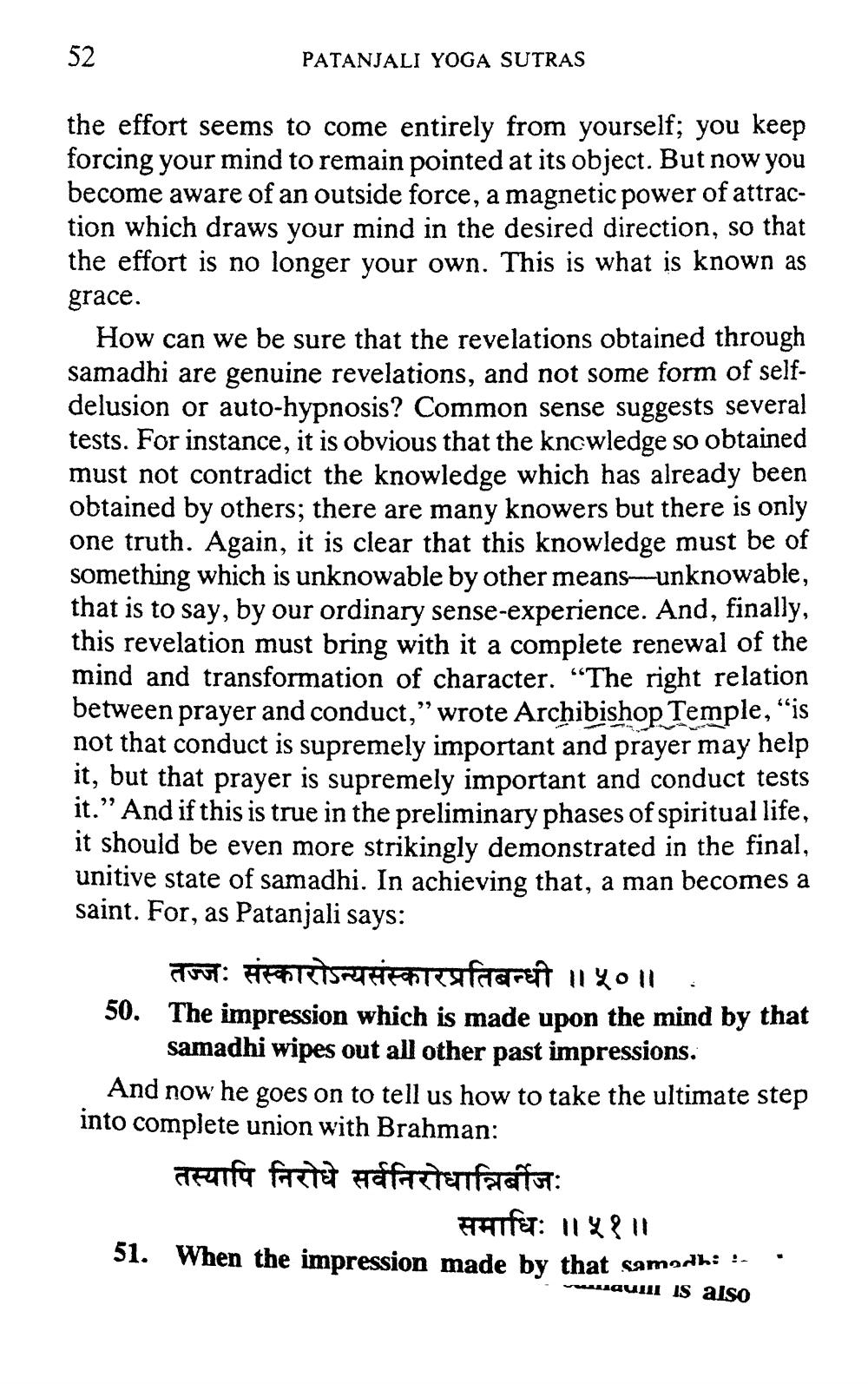________________
52
PATANJALI YOGA SUTRAS
the effort seems to come entirely from yourself; you keep forcing your mind to remain pointed at its object. But now you become aware of an outside force, a magnetic power of attraction which draws your mind in the desired direction, so that the effort is no longer your own. This is what is known as grace.
How can we be sure that the revelations obtained through samadhi are genuine revelations, and not some form of selfdelusion or auto-hypnosis? Common sense suggests several tests. For instance, it is obvious that the knowledge so obtained must not contradict the knowledge which has already been obtained by others; there are many knowers but there is only one truth. Again, it is clear that this knowledge must be of something which is unknowable by other means-unknowable, that is to say, by our ordinary sense-experience. And, finally, this revelation must bring with it a complete renewal of the mind and transformation of character. "The right relation between prayer and conduct," wrote Archibishop Temple, "is not that conduct is supremely important and prayer may help it, but that prayer is supremely important and conduct tests it." And if this is true in the preliminary phases of spiritual life, it should be even more strikingly demonstrated in the final, unitive state of samadhi. In achieving that, a man becomes a saint. For, as Patanjali says:
तज्जः संस्कारोऽन्यसंस्कारप्रतिबन्धी ॥ ५०॥
50. The impression which is made upon the mind by that samadhi wipes out all other past impressions.
And now he goes on to tell us how to take the ultimate step into complete union with Brahman:
तस्यापि निरोधे सर्वनिरोधान्निर्बीज:
erfer: 112811
51. When the impression made by that samadhi:
~---ull Is als0




